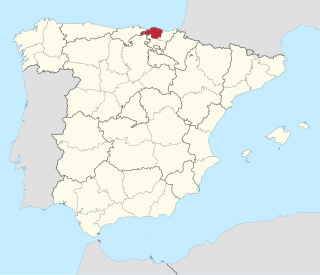 W
WBiscay is a province of Spain, lying on the south shore of the eponymous bay. The name also refers to a historical territory of the Basque Country, heir of the ancient Lordship of Biscay. Its capital city is Bilbao. It is one of the most prosperous and important provinces of Spain as a result of the historical trading importance of its commercial ports after the middle ages and the massive industrialization during the last quarter of the 19th century and first half of the 20th century. Since the deep deindustrialization of the 1970s, the economy has come to rely more on the services sector.
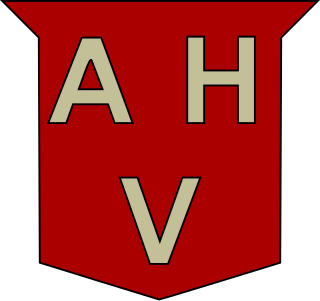 W
WAltos Hornos de Vizcaya, S.A. was a Spanish metallurgy manufacturing company. It was the largest company in Spain for much of the 20th century, employing 40,000 workers at its height. The business began in 1902 in Bilbao with the merger of three iron and steel businesses: Altos Hornos de Bilbao, La Vizcaya, and La Iberia. In the 1990s, following a series of mergers, it joined with Arcelor.
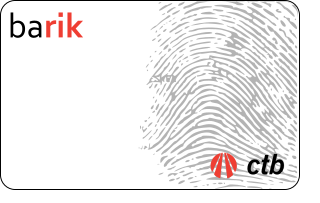 W
WBarik is rechargeable contactless smart card, electronic money used for public transport in Biscay (Spain).
 W
WBilbao Airport is a minor international airport located 9 km (5.6 mi) north of Bilbao, in the municipality of Loiu, in Biscay. It is the largest airport in the Basque Country and northern Spain, with 5,469,453 passengers in 2018. It is famous for its new main terminal opened in 2000 designed by Santiago Calatrava.
 W
WBiscay is one of the three constituencies represented in the Basque Parliament, the regional legislature of the Basque Autonomous Community. The constituency currently elects 25 deputies. Its boundaries correspond to those of the Spanish province of Biscay. The electoral system uses the D'Hondt method and a closed-list proportional representation, with a minimum threshold of three percent.
 W
WBiscay is one of the 52 constituencies represented in the Congress of Deputies, the lower chamber of the Spanish parliament, the Cortes Generales. The constituency currently elects eight deputies. Its boundaries correspond to those of the Spanish province of Biscay. The electoral system uses the D'Hondt method and a closed-list proportional representation, with a minimum threshold of three percent.
 W
WBiscay is one of the 59 constituencies represented in the Senate of Spain, the upper chamber of the Spanish parliament, the Cortes Generales. The constituency elects four senators. Its boundaries correspond to those of the Spanish province of Biscay. The electoral system uses an open list partial block voting, with electors voting for individual candidates instead of parties. Electors can vote for up to three candidates.
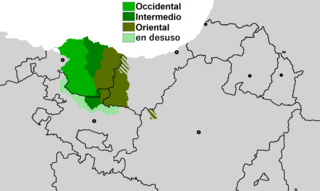 W
WBiscayan, sometimes Bizkaian is a dialect of the Basque language spoken mainly in Biscay, one of the provinces of the Basque Country of Spain.
 W
WBizkaiBus is the name for bus services serving the province of Biscay, Spain. It is named after the Basque name of the province, Bizkaia. The buses can be identified by their distinctive green livery.
 W
WCangas is a Spanish Denominación de Origen Protegida (DOP), traditionally called a Vino de calidad con Indicación Geográficafor wines located in the autonomous region of Asturias. This is one step below the mainstream Denominación de Origen quality wines and one step above the less stringent Vino de la Tierra wines on the quality ladder.
 W
WThe County of Durango, also known as Land of Durango and Merindad of Durango, was the ancient political administration of the territory that is now known as Durangaldea, in the Basque region of Biscay. This political administration included all the towns and elizates that existed within its territory. The elizates were all governed by the Foral law, while the towns had their own law. The county of Durango was a vassal state of the Kingdom of Pamplona, and in the 13th Century it became a constituent part of the Lordship of Biscay. It has been part of the territory of Biscay since then. Its capital city was the town of Durango.
 W
WCreditrans was a travel card used to travel around Biscay, in the Basque Country (Spain). The card was the most popular ticket in the area, used by over 100 million passengers in 2007.
 W
WThe Bombing of Durango took place on 31 March 1937, during the Spanish Civil War. On 31 March 1937 the Nationalists started their offensive against the Republican held province of Biscay. As part of the offensive the Aviazione Legionaria and the Legion Condor bombed Durango, a town of 10,000 inhabitants that was also a key road and railway junction behind the frontline. Around 250 people are believed to have died in the bombing.
 W
WGestamp Automoción, S.A. simply known as Gestamp, is a Spanish multinational automotive engineering company. It is one of leading firms in the European automotive industry.
 W
WTxakoli de Getaria - Getariako Txakolina is a Spanish Denominación de Origen Protegida (DOP) for wines, located around the towns of Getaria and Zarautz, small fishing towns on the coast of the Bay of Biscay, in the province of Gipuzkoa, Basque Country, Spain. A small amount of grapes are also grown around the town of Aia.
 W
WThe Lordship of Biscay was a region under feudal rule in the region of Biscay in the Iberian Peninsula between c.1040 and 1876, ruled by a political figure known as the Lord of Biscay. One of the Basque señoríos, it was a territory with its own political organization, with its own naval ensign, consulate in Bruges and customs offices in Balmaseda and Urduña, from the 11th Century until 1876, when the Juntas Generales were abolished. Since 1379, when John I of Castile became the Lord of Biscay, the lordship got integrated into the Crown of Castile, and eventually the Kingdom of Spain.
 W
WThe Mundaka wave, at Mundaka in the Basque Country, northern Spain, is a surfing location considered one of the best lefts of the world.
 W
WTorresol Energy is a company dedicated to developing renewable energy and alternative energies, focusing on concentrated solar energy. It is based in the city of Getxo in Biscay Province (Vizcaya), in the Basque Country of northern Spain.
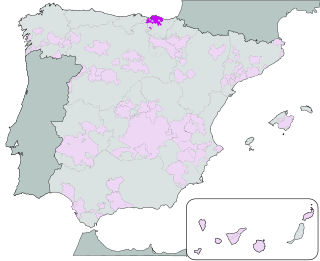 W
WTxakoli de Bizkaia – Bizkaiko Txakolina is a Spanish Denominación de Origen Protegida (DOP) for wines, located in the province of Bizkaia, Basque Country, Spain. The DOP includes vineyards from 82 different municipalities.
 W
W